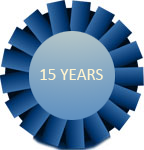You can create a greener lifestyle by upgrading your heating and cooling system, insulating your home, and reducing the amount of water you use. These changes will help you save on your heating and cooling and monthly water bills. Overall, these are essential improvements that will keep your home running efficiently daily and provide you with a greener lifestyle.
Insulating Your Home and Water Proofing
Insulating your home will save you money on heating and cooling costs. Insulation is designed to reduce the amount of heat that goes out or goes into your home. There are several distinct types of insulation, and the best types depend on the type of home you own and your needs. When you have an energy audit performed, the service can determine where you need most to insulate your home.
Insulating your roof and attic can lead to lower utility bills and energy savings. It can prevent damage from moisture buildup and mold. In some homes, ceilings are insulated because heat escapes from them like an attic.
Some homeowners insulate walls and crawl spaces because cold and hot air comes in through these spaces. Insulating your basement will prevent water pipes from freezing, control moisture, and reduce the use of energy. Other areas that might need insulation are ducts and interior walls.
Many homeowners waterproof their basement to prevent water from entering it and causing damage. Water damage in the basement causes mold and problems with your foundation. Metro Home Insulation and Waterproofing says insulating your basement wall can reduce heating costs by 10% to 20%.
Updating Your Heating and Cooling System
Keeping your heating and cooling systems running efficiently can make your lifestyle greener. If you have a furnace and separate air conditioners, updating to an HVAC system will cool and heat the house using one system. There are several types of HVAC systems, and some are designed for certain climates and regions.
When you contact your local heating and cooling service, they can help you choose the best HVAC system for your home. Some systems use heat pumps powered by gas or electric energy, and geothermal pumps use energy from the ground. Putting in a new HVAC system can be expensive but will reduce heating and cooling costs in your home. According to The Residential Program Guide at energy.gov, getting a new HVAC system can save you 50% on electricity and 10% on gas bills.
Saving On Your Water Bill
Today, many consumers are looking for ways to save water. One way to save water is to install energy-saving water faucets and water-efficient toilets. These fixtures use less water and are rated by a government agency called Energy Star. They rate washers and dishwashers that use less water. When it is time to replace these appliances, choosing an Energy Star rated appliance that saves water is a viable choice. Another way to save water is only to run the dishwasher when it is full and limit the amount of time for a shower from 10 to 15 minutes per person.
Renting or having a professional service power wash your home, sidewalks, patio, or deck can save the amount of water you use to clean large areas. Power washers use less water than your garden house because they use high pressure, limiting the amount that comes out. According to the Long Beach Water Department, a pressure washer uses two gallons of water per minute, and a garden hose 20 gallons of water per minute. Renting a power washer will be less expensive than using a service. However, if you are not a handyman, using a professional service is a better choice.
These are three ways to improve your lifestyle and support the community and local businesses. Using your local businesses or contractors to help you repair or upgrade your HVAC system, inspect, and insulate your home, or hire a local power washing service improves your home environment and benefits the community.



